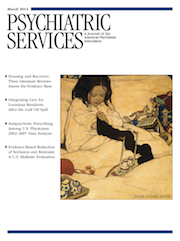Project STYLE: A Multisite RCT for HIV Prevention Among Youths in Mental Health Treatment
Abstract
Objective
The study examined the efficacy of family-based and adolescent-only HIV prevention programs in decreasing HIV risk and improving parental monitoring and sexual communication among youths in mental health treatment.
Methods
A randomized controlled trial (RCT) with 721 adolescents (ages 13–18 years) and their caregivers from mental health settings in three U.S. cities were randomly assigned to one of three theory-based, structured group interventions: family-based HIV prevention, adolescent-only HIV prevention, and adolescent-only health promotion. Interventions were delivered during an all-day workshop. Assessments were completed at baseline and three months postintervention.
Results
Compared with those in the health intervention, adolescents in the HIV prevention interventions reported fewer unsafe sex acts (adjusted rate ratio=.49, p=.01), greater condom use (adjusted relative change=59%, p=.01), and greater likelihood of avoiding sex (adjusted odds ratio=1.44, p=.05). They also showed improved HIV knowledge (p<.01) and self-efficacy (p<.05). The family-based intervention, compared with the other interventions, produced significant improvements in parent-teen sexual communication (p<.01), parental monitoring (p<.01), and parental permissiveness (p=.05).
Conclusions
This RCT found that the HIV prevention interventions reduced sexual risk behavior over three months in a large, diverse sample of youths in mental health treatment and that the family-based intervention improved parental monitoring and communication with teens about sex. These interventions show promise.



